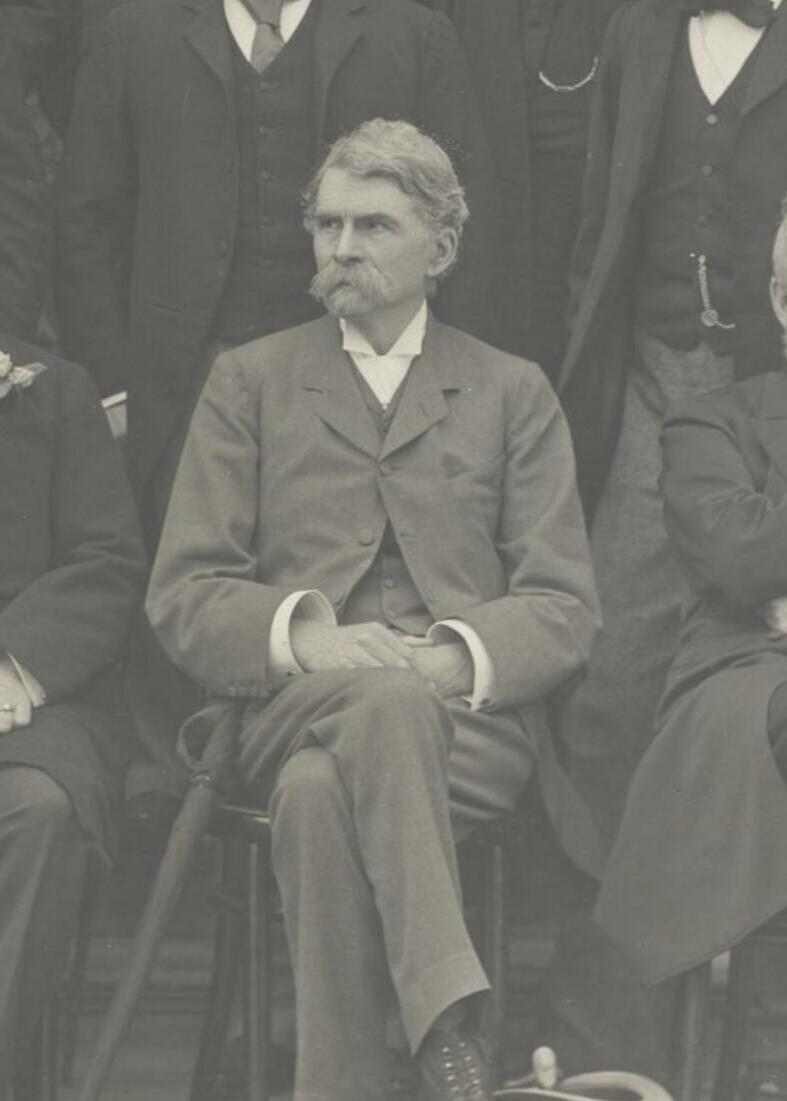|
Edward Braddon
Sir Edward Nicholas Coventry Braddon (11 June 1829 – 2 February 1904) was an Australian politician who served as Premier of Tasmania from 1894 to 1899, and was a Member of the First Australian Parliament in the House of Representatives. Braddon was a Tasmanian delegate to the Constitutional Conventions. Both the suburb of Braddon in the Australian Capital Territory and the Division of Braddon in Tasmania are named after him. Early life Braddon was born in St. Kew, Cornwall in 1829, the son of unsuccessful solicitor Henry Braddon and his wife Fanny White. He had two sisters, one of whom, Mary Elizabeth Braddon, was later a famous novelist. Braddon was educated at various private schools including University College School, and later at University College London. Henry and Fanny separated in 1840, due to Henry's financial failures, and in 1847, Braddon left for India to take a job with his cousin's merchant business. He later joined the Indian civil service, rising to ... [...More Info...] [...Related Items...] OR: [Wikipedia] [Google] [Baidu] [Amazon] |
The Right Honourable
''The Right Honourable'' (abbreviation: The Rt Hon. or variations) is an honorific Style (form of address), style traditionally applied to certain persons and collective bodies in the United Kingdom, the former British Empire, and the Commonwealth of Nations. The term is predominantly used today as a style associated with the holding of certain senior public offices in the United Kingdom, Canada, New Zealand, and, to a lesser extent, Australia. ''Right'' in this context is an adverb meaning 'very' or 'fully'. Grammatically, ''The Right Honourable'' is an adjectival phrase which gives information about a person. As such, it is not considered correct to apply it in direct address, nor to use it on its own as a title in place of a name; but rather it is used in the Grammatical person, third person along with a name or noun to be modified. ''Right'' may be abbreviated to ''Rt'', and ''Honourable'' to ''Hon.'', or both. ''The'' is sometimes dropped in written abbreviated form, but is ... [...More Info...] [...Related Items...] OR: [Wikipedia] [Google] [Baidu] [Amazon] |
University College School
University College School, also known as UCS, is a private day school in Frognal, Hampstead, London, England. The school was founded in 1830 by University College London and inherited many of that institution's progressive and secular views. The UCS Hampstead Foundation is composed of three main entities: the Pre-Prep (previously known as The Phoenix School) for ages 3 to 7 on the Finchley Road site, acquired by UCS in 2003; the Junior Branch, for boys aged 7 to 11 on the Holly Hill site in Hampstead; and the Senior School, for boys aged 11 to 16 and co-educational for ages 16 to 18 on the Frognal site, which is the largest school site. The main campus and the Great Hall are noted examples of Edwardian architecture. Inside the hall is a Walker pipe organ, used for school concerts, professional recordings and other festivities. The school also owns playing fields situated in Ranulf Road in West Hampstead, used for training, physical education and sporting fixtures. UCS is a me ... [...More Info...] [...Related Items...] OR: [Wikipedia] [Google] [Baidu] [Amazon] |
James Agnew
Sir James Willson Agnew (2 October 1815 – 8 November 1901) was an Irish-born Australian politician, who was Premier of Tasmania from 1886 to 1887. Early life Agnew was born in Ballyclare, Ireland and educated at London, Paris and Glasgow; he qualified for the medical profession, M.R.C.S.(London) in 1838, and M.D.(Glasgow) 1839. Soon after he went to Australia, arriving at Sydney before the end of 1839. He decided to settle in the west of Port Phillip District (now the Western district of Victoria), but not enjoying the life, went to Melbourne, where he was offered the position of private secretary to John Franklin, then governor of Van Diemen's Land (now Tasmania). He sailed for Hobart in 1841 and found that the position had been filled. He was, however, soon appointed assistant surgeon at the Cascades Peninsula. Later in 1841 he was appointed assistant surgeon to the Saltwater River probation station, located on the Tasman Peninsula In 1845 he transferred to the General Hos ... [...More Info...] [...Related Items...] OR: [Wikipedia] [Google] [Baidu] [Amazon] |
Official Opposition (Australia)
In Australian parliamentary practice, the Opposition or the Official Opposition consists of the second largest party or coalition of parties in the Australian House of Representatives, with its leader being given the title ''Leader of the Opposition''. The Opposition serves the same function as the official opposition in other Commonwealth of Nations monarchies that follow the Westminster conventions and practices. It is seen as the alternative government and the existing administration's main opponent in the Australian Parliament and at a general election. By convention, the Opposition Leader in the federal Parliament comes from the House of Representatives, as does the deputy, although the Government and Opposition may also both have leaders in the Senate. The Opposition is sometimes styled as ''His Majesty's Loyal Opposition'' to show that, although the group may be against the sitting government, it remains loyal to the Crown (the embodiment of the Australian state), and thus t ... [...More Info...] [...Related Items...] OR: [Wikipedia] [Google] [Baidu] [Amazon] |

